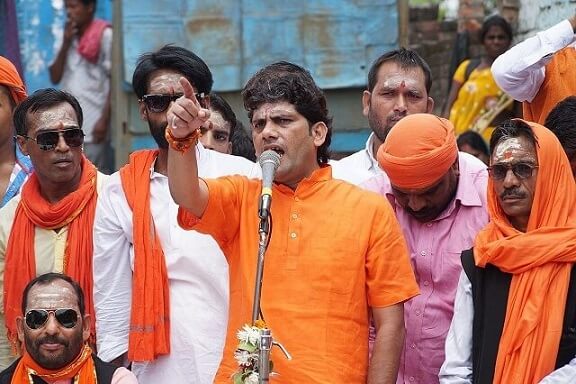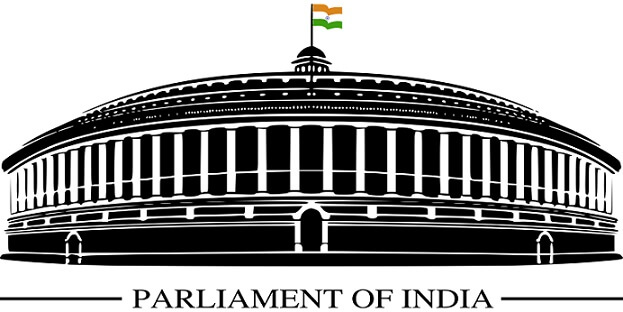There are three things that contribute most to the rise of a political party. These are: ideology, ideology, and ideology. Without an ideology, it is plainly impossible to build or sustain the organizational strength of a political force. The current rise of the Bharatiya Janata Party (BJP) has been founded on the twin poles of Hindutva ideology and the vehicle of organizational strength provided by the Rashtriya Swayamsevak Sangh (RSS). There was a time when the appeal and policies of the Indian National Congress (INC) were based on ideology as well as a strong organizational structure. Today, INC has been reduced to a tottering house. Its contemporary leaders neither have an ideology to propagate nor do they have the organizational strength or rather intimate presence amongst the masses to inspire support. INC’s leadership is divided though nobody is willing to come out in the open. The Party has become the textbook example of what Lincoln referred to when he said that a house divided against itself cannot stand. On the other hand, BJP with all its faults remains a much more meritocratic institution than the INC (there are three ministers in the present cabinet who are or have been BJP presidents in the past). From the past three decades, BJP-RSS workers have undertaken herculean measures to propagate the ideology of Hindutva with vigor. Even amongst the general public, BJP has been able to convey its ideal of Hindutva effectively. Even if you don’t vote for the BJP, you are aware of what that party stands for. What has the opposition brought to the table for challenging the ideology of Hindutva?
In the 1950s, there was the architect of Modern India, Jawaharlal Nehru, who ruled the nation like a prince beloved of the masses. Well, whatever he did or did not do, he was placed by history, hard work, and sacrifices to reign people’s hearts. But, at the same time, he had a clear vision for the future of India based on the ideology of Socialism tweaked with India’s requirements and circumstances. This should be differentiated from his policies which can be debated as being good or bad. His daughter, Indira Gandhi, too had a clear ideology of Socialism with populist measures thrown into it. Again, one might agree or disagree with her politics and policies, but one cannot deny that she had the thread of an ideology (Socialism) to fabricate the Congress organization and motivate the Congress workers towards achieving a higher ideal. The fall of the Soviet Union ensured that the word Socialism slowly started to become anathema. Socialistic measures are still undertaken by governments in India whether it be the United Progressive Alliance (UPA) or the National Democratic Alliance (NDA) but under the garb of alleviating the poor. Thus, launching a political campaign around Socialism can now be safely ruled out. Socialism can now only serve as a vehicle for the government’s “Socialistic” policies but not as a realistic political ideology.
After Indira Gandhi’s assassination, the word or rather the ideology of Secularism too started to become repellant. It was Rajiv Gandhi’s disastrous decision-making that did more than anything else to the rise of Hindutva. Today, any politician propagating Secularism as the ideology of his/her party can be sure to find himself/herself becoming a persona non grata in the eyes of the vast majority of voters. S/he is sure to land on an isolated island where the only audience eager to listen to him/her will consists of sophisticated (probably Lutyens Delhi-based) intellectuals. This is because the BJP-RSS duo has successfully been able to promulgate amongst general masses that Hindus have suffered at the hands of the politicians pursuing Muslim appeasement. This inference is plainly false since data collected either by governmental or private agencies clearly show that Muslims continue to be in a miserable state, just like Dalits and Tribals. It is sadly true that successive Congress governments did not do enough for Muslims even when they enjoyed support from the community. A stable middle-class has still not sprouted amongst India’s Muslims.
We have reached a point today that among more than 300 members of parliament belonging to the BJP, the number of Muslims are exactly zero. How then to counter the further rise of Hindutva which is based on hatred, majoritarianism, hypocrisy, and prejudice? One possible answer is to focus on the term ‘Pluralism’ instead of Socialism or Secularism. This term, Pluralism, encompasses not just the ideal of Secularism in itself but also conveys respect across all axes of diversity embodying Indian life—based on race, language, religion, caste, culture, color, etc. The term is a direct attack on the Hindutva equation of “One nation = One religion = One language.” Incidentally, the ideal of Pluralism that was practiced in India for centuries by multiple Emperors, Kings, their Majesties and Highnesses, and the like, belonging to different religions and races, was what turned India into a palimpsest of diversity that we see around us today. The BJP-RSS Hindutva equation has actually come instead from the European model of nationalism which is based on allegiance to a particular language or Christian/religious sect. Had India been following this equation during its millennia-long history (like China did), it would have been stripped of its diversity long ago.
But, Pluralism in itself may not be able to garner sufficient opposition to counter the Hindutva propaganda. This is because not all ideals can be politically feasible or easy to propagate. Pluralism may be an admirable inspiration like non-violent opposition to Imperialism was but sadly, Mahatmas don’t take birth every so often for converting an admirable inspiration into a political campaign. This is where the other side of the same coin, Federalism, may be able to fit itself.
The history of Independent India’s polity tells us that we should be thankful to our southern brethren to keep alive the idea of Federalism. From the movement against the imposition of Hindi in the 1950s and 60s to the rise of regional political parties challenging the hegemony of the dominant northern factions, South India has always been a bulwark against Unitarianism in the Indian state. Latest protests against the proposed education policy again highlighted that how effectively can Federalism work in opposing the Hindutva equation as it had done more than half a century ago against the INC. South India has not only been first in progressing ahead in a peaceful manner but has also invariably been the first in declaring war against majoritarian policies of the Center (whether it be of the INC or the BJP).
The makers of our Constitution had the vision that India would imbibe the principle of Federalism while at the same time retaining the characteristics of a strong Union. They were not absolutely wrong or right in the implementation of that vision. They were bequeathed a very strong and centralized structure of governance by the British and it would have been difficult for anybody to conceive providing huge autonomy to the provinces. Both Patel and Nehru had earlier supported the creation of states based on linguistic groups but both opposed it in the late 1940s after witnessing the horrors of the Partition. Seven decades later, now is the time for the states to receive their rightful due. The Union is so strong and stable now that the spirit of Federalism will only further stimulate diversity and not lead to schism. More than anybody, the prime minister who has been the chief minister of a major Indian state for a long time should realize this.
With Socialism and Secularism having been eliminated from the political arena, another ideology will have to fill the void. Federalism seems to me the most likely one around which a realistic political campaign can be weaved to challenge the hegemony of Hindutva. An organizational structure capable of taking on the BJP-RSS edifice head-on will be required to counter Hindutva with Federalism. Else, without effective opposition, the institution of Democracy is as good as Majority-rule. As the line from the movie Maqbool goes:
शक्ति का संतुलन बहुत ज़रूरी है संसार में,
आग के लिए पानी का डर बने रहना चाहिए
(Its need being paramount, the balance of power must always be maintained in the world;
Fear of water must be ever-present for the titanic force of fire)

 Churchill and Kissinger: The Predicament of Evaluating Some Public Figures
Churchill and Kissinger: The Predicament of Evaluating Some Public Figures